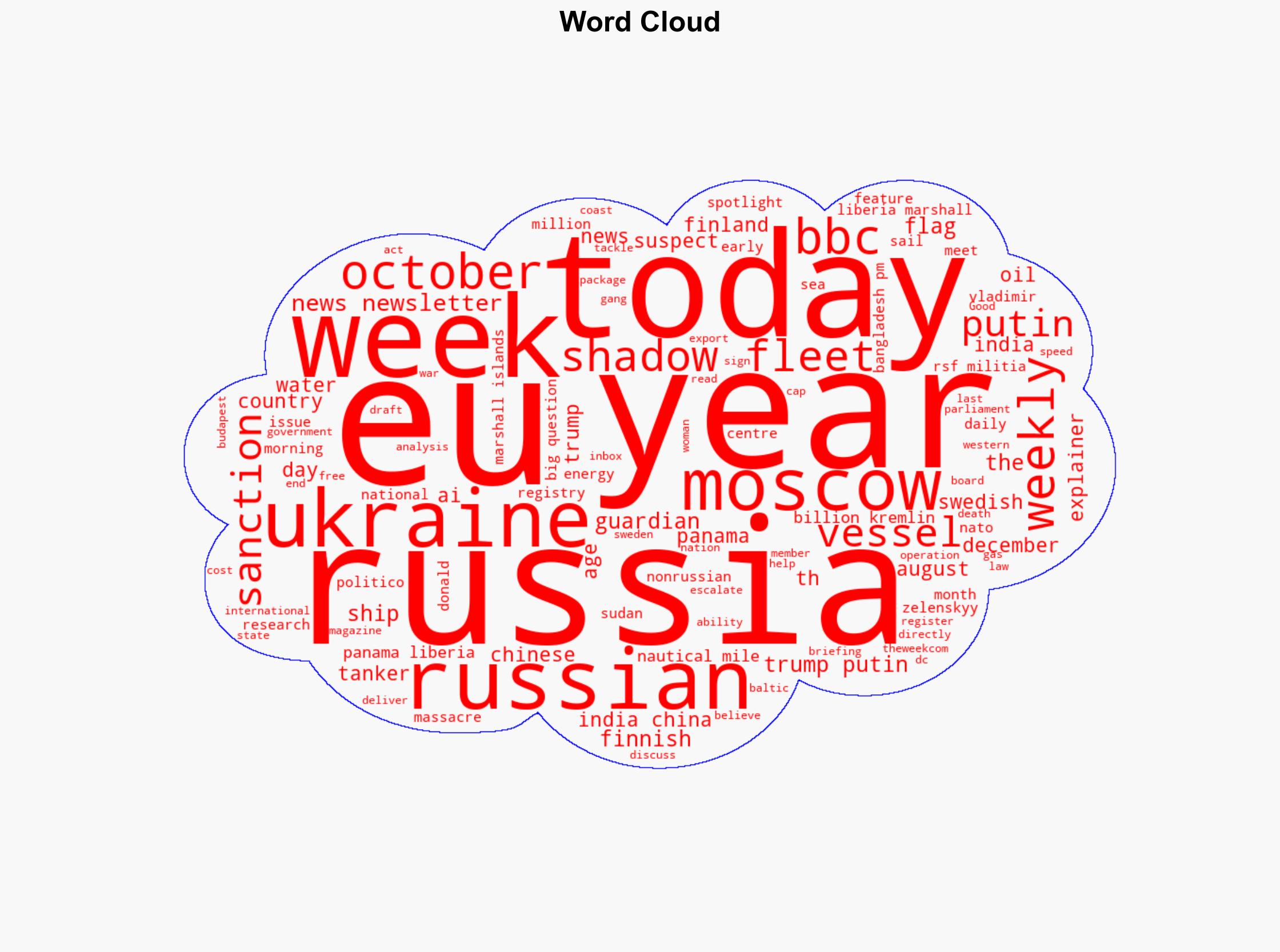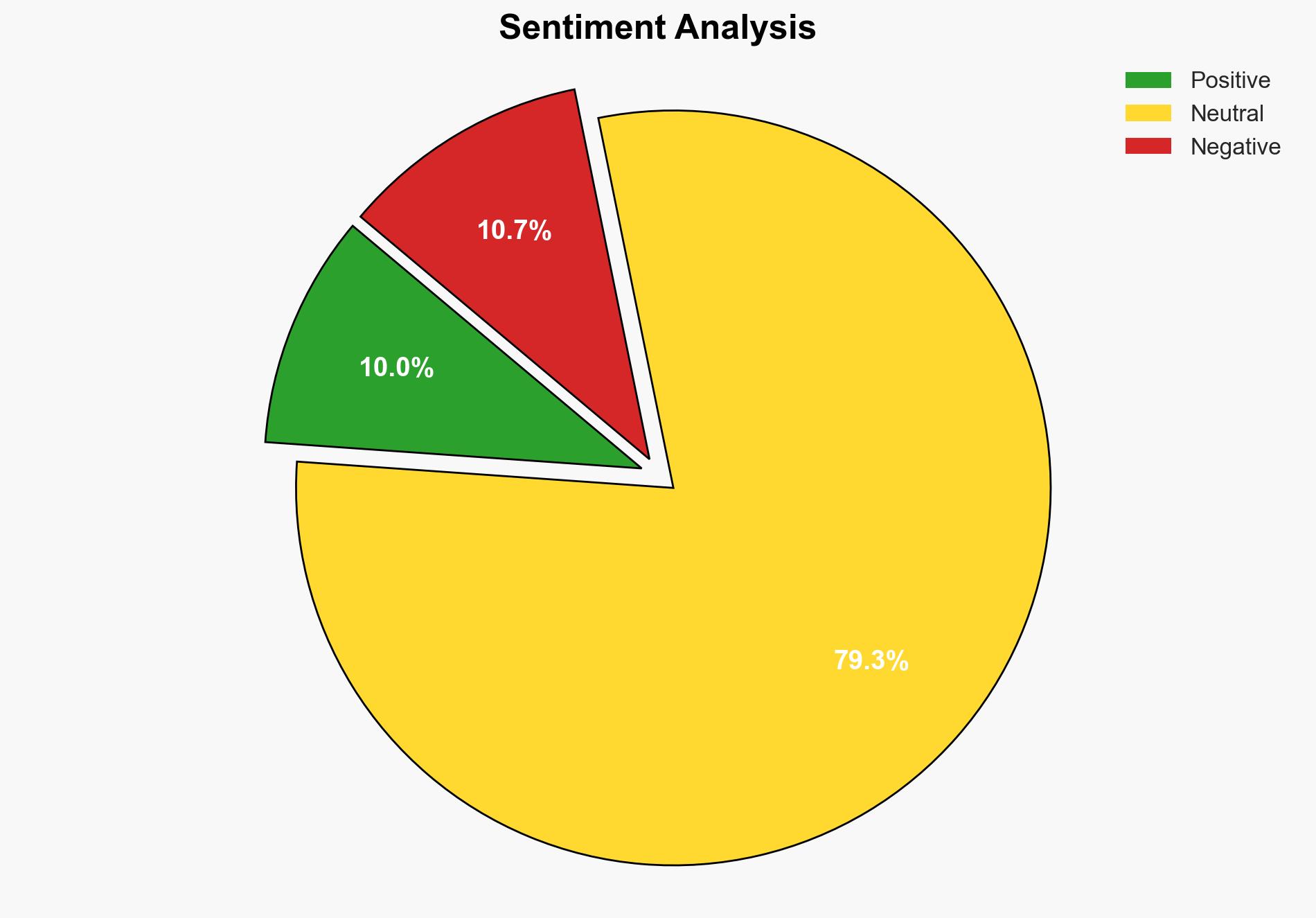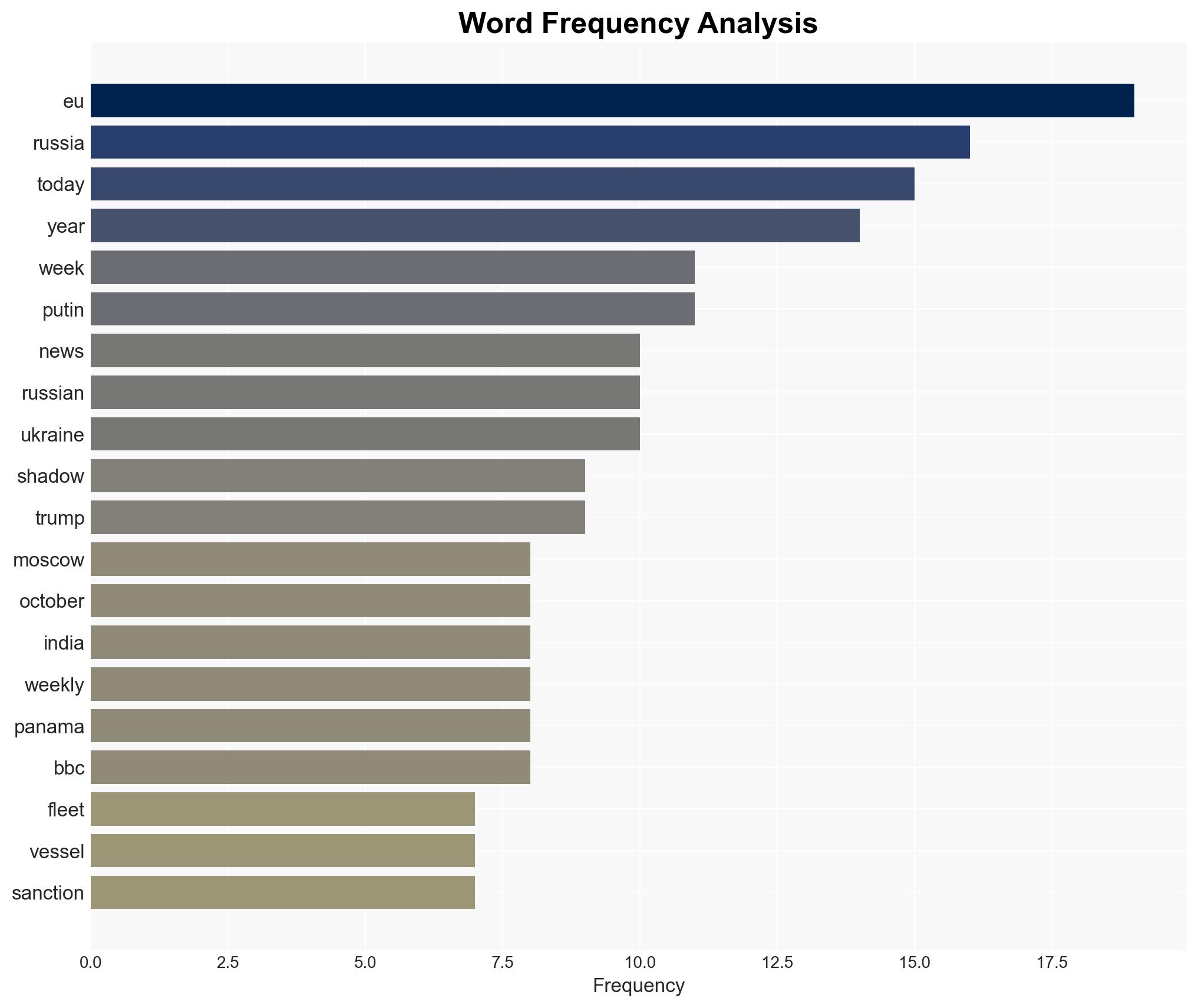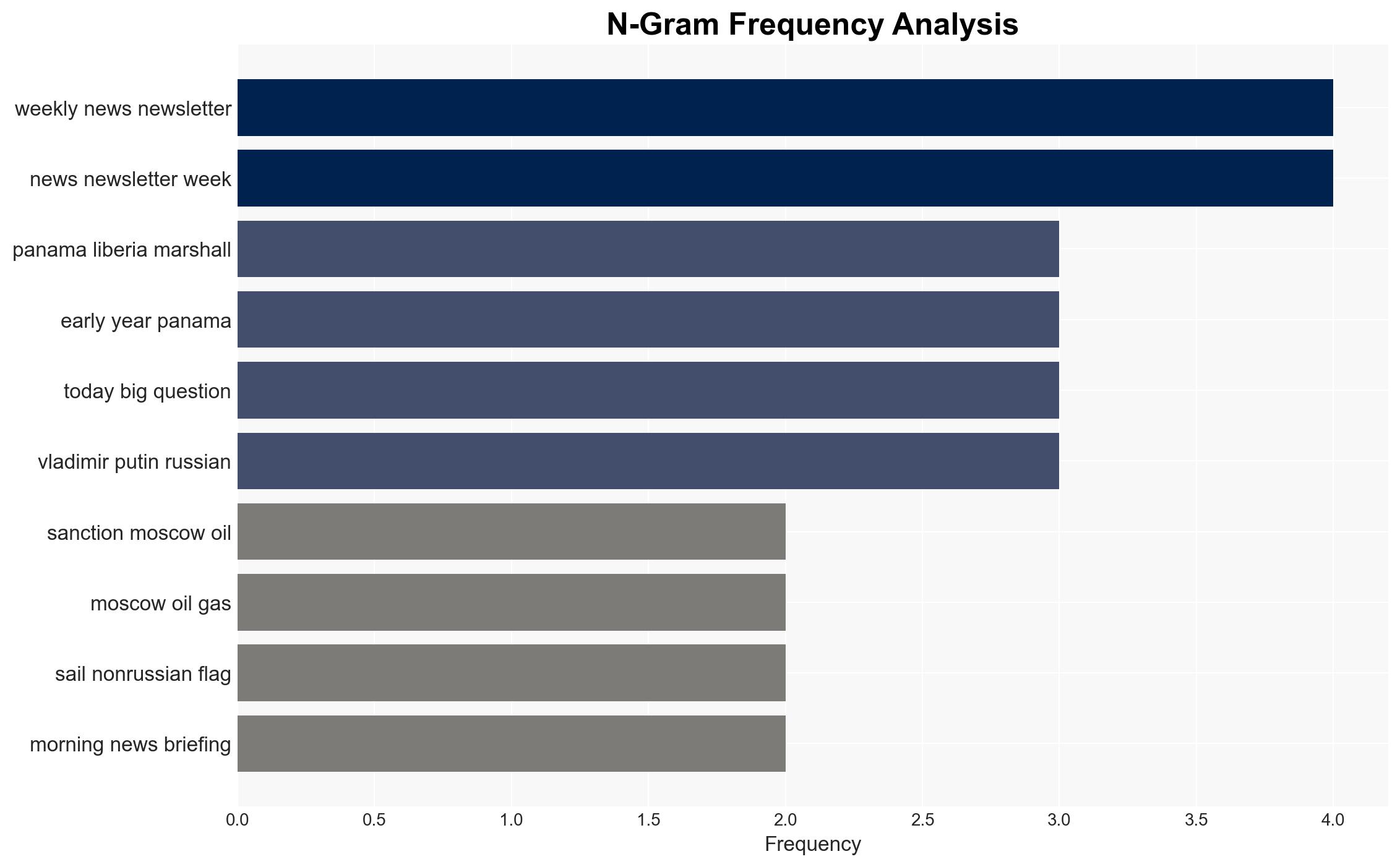Defeating Russias shadow fleet – The Week Magazine
Published on: 2025-11-20
AI-powered OSINT brief from verified open sources. Automated NLP signal extraction with human verification. See our Methodology and Why WorldWideWatchers.
Intelligence Report:
1. BLUF (Bottom Line Up Front)
With a moderate confidence level, the most supported hypothesis is that Russia’s shadow fleet is a strategic tool to circumvent EU sanctions, posing a significant challenge to international regulatory frameworks. Recommended actions include enhancing international cooperation for maritime enforcement and incentivizing flag states to deregister non-compliant vessels.
2. Competing Hypotheses
Hypothesis 1: Russia’s shadow fleet is primarily a deliberate state-sponsored mechanism to bypass EU sanctions on oil and gas, ensuring continued revenue streams despite international pressure.
Hypothesis 2: The shadow fleet operates independently of direct Russian state control, driven by private actors exploiting regulatory loopholes for profit, with incidental benefits to the Russian state.
Hypothesis 1 is more likely due to the strategic importance of oil and gas revenues to the Russian economy and the coordinated nature of the fleet’s operations, which suggest state-level orchestration rather than purely private enterprise.
3. Key Assumptions and Red Flags
Assumptions: The effectiveness of EU sanctions relies on comprehensive international compliance and enforcement. The shadow fleet’s operations are assumed to be primarily Russian-owned or influenced.
Red Flags: The ease of flag-hopping and re-registration in lenient jurisdictions like Panama and Liberia. Limited enforcement capabilities in international waters present significant challenges.
Deception Indicators: The use of non-Russian flags and false registrations to obscure vessel origins and ownership.
4. Implications and Strategic Risks
The shadow fleet’s operations could undermine the efficacy of international sanctions, emboldening other sanctioned states to adopt similar tactics. This may lead to increased geopolitical tensions, particularly in regions like the Baltic Sea, and could provoke retaliatory measures from affected nations, escalating into broader economic or diplomatic conflicts.
5. Recommendations and Outlook
- Enhance international maritime cooperation and intelligence sharing to improve detection and enforcement against the shadow fleet.
- Develop incentives for flag states to deregister non-compliant vessels, similar to Panama’s recent commitments.
- Best-case scenario: Successful international cooperation leads to a significant reduction in shadow fleet operations, reinforcing the effectiveness of sanctions.
- Worst-case scenario: Continued shadow fleet operations undermine sanctions, leading to increased geopolitical tensions and potential conflicts.
- Most-likely scenario: Incremental improvements in enforcement reduce but do not eliminate shadow fleet activities, maintaining a persistent challenge to sanctions.
6. Key Individuals and Entities
No specific individuals are identified within the provided text. Key entities include the EU, Russian state actors, and flag states such as Panama, Liberia, and the Marshall Islands.
7. Thematic Tags
Structured Analytic Techniques Applied
- Cognitive Bias Stress Test: Expose and correct potential biases in assessments through red-teaming and structured challenge.
- Bayesian Scenario Modeling: Use probabilistic forecasting for conflict trajectories or escalation likelihood.
- Network Influence Mapping: Map relationships between state and non-state actors for impact estimation.
Explore more:
National Security Threats Briefs ·
Daily Summary ·
Support us





